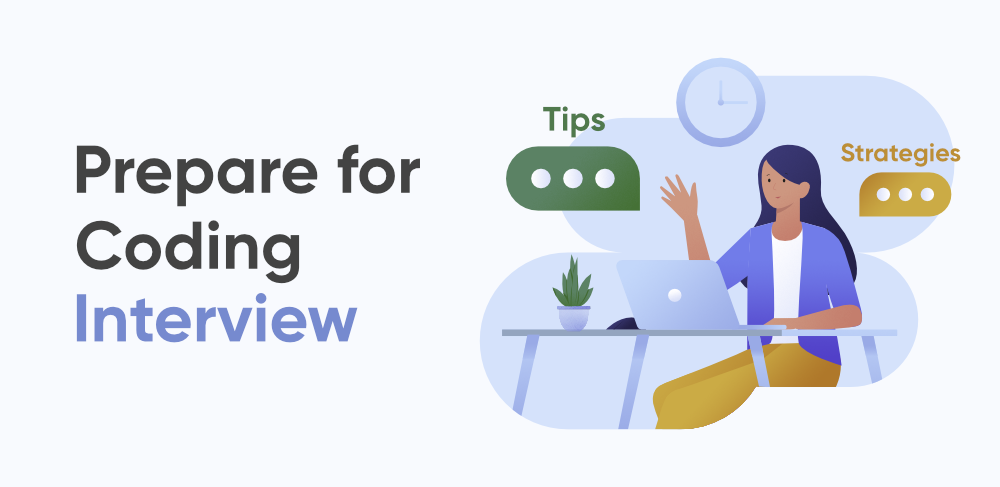Are you gearing up for a crucial job interview that involves JavaScript? Does the mere thought of coding challenges and technical questions make you break into a sweat? Well, fear not! In this article, we’ll introduce you to the world of JavaScript interview preparation course. Whether you’re a novice or an experienced coder, we’ve got you covered.
Let’s dive in and discover how these courses can boost your confidence and help you land your dream job.
JavaScript Interview Preparation Course – Table of Contents
- Why JavaScript Interview Preparation Courses?
- Understanding the Basics of JavaScript
- JavaScript Crash Course for Interviews
- The Ultimate JavaScript Interview Course
- Insights into Eric Traub’s Ultimate JavaScript Interview Course
- The Art of Acing a JavaScript Coding Interview
- Mastering the JavaScript Interview: A Crash Course
- Udemy’s Ultimate JavaScript Interview Course: Is It Worth It?
- Cracking the Coding Challenges
- Common JavaScript Interview Questions
- Preparing for Technical Assessments
- Interview Strategies: Do’s and Don’ts
- Boosting Your Problem-Solving Skills
- Conclusion: Your Journey to JavaScript Interview Success
- Frequently Asked Questions (FAQs)
Why JavaScript Interview Preparation Course?
JavaScript interview preparation courses are designed to help individuals prepare for interviews specifically focused on JavaScript and web development. There are several reasons why someone might choose to take such courses:
- Technical Proficiency: JavaScript is a widely used programming language for web development. Interviewers often assess candidates’ technical knowledge and coding skills related to JavaScript. These courses help candidates improve their proficiency in the language, covering topics like syntax, data structures, algorithms, and common libraries or frameworks.
- Coding Challenges: Many JavaScript interview courses include coding challenges and exercises that mimic real interview scenarios. Practicing these challenges helps candidates become more comfortable with problem-solving under pressure and demonstrating their coding skills during interviews.
- Algorithmic Thinking: JavaScript interview preparation courses often cover algorithms and data structures that are commonly asked in technical interviews. Learning these concepts not only helps with interviews but also improves one’s problem-solving abilities in JavaScript and other languages.
- Interview Strategy: These courses often provide insights into interview strategies, including how to approach technical questions, how to communicate effectively with interviewers, and how to showcase your skills and experience.
Understanding the Basics of JavaScript
If you’re new to JavaScript or need a quick refresher, this section will provide you with a concise overview of the language. Understanding the basics is crucial before diving into interview preparation.
JavaScript is a versatile and widely used programming language primarily used for web development. It allows you to add interactivity, manipulate web page content, and respond to user actions in web applications.
JavaScript Crash Course for Interviews
Certainly! Here’s a crash course on JavaScript for interviews:
Introduction to JavaScript:
- JavaScript is a high-level, interpreted programming language primarily used for front-end web development.
- It allows you to add interactivity and behavior to web pages.
Basic Syntax:
- JavaScript uses variables to store data and has several data types like numbers, strings, booleans, objects, and arrays.
- Use var, let, or const to declare variables.
- Semicolons are used to end statements, but they are often optional.
Operators:
- JavaScript supports arithmetic operators (+, -, *, /), comparison operators (==, ===, !=, !==), and logical operators (&&, ||, !).
Control Structures:
- Conditional statements like if, else if, and else help control program flow.
- Loops like for, while, and do…while allow for repetitive tasks.
Functions:
- Functions are blocks of reusable code defined using the function keyword.
- You can pass parameters into functions and return values using the return keyword.
Arrays and Objects:
- Arrays hold ordered lists of data, and objects store data as key-value pairs.
- You can access elements using indexing for arrays and dot notation or bracket notation for objects.
The Ultimate JavaScript Interview Course
“The Ultimate JavaScript Interview Course” is a course or resource designed to help individuals prepare for interviews related to JavaScript programming. This type of course typically covers a wide range of topics and concepts related to JavaScript, including but not limited to:
- JavaScript fundamentals: Variables, data types, operators, and basic syntax.
- Control flow: Conditional statements (if/else), loops (for, while), and switch statements.
- Functions: Defining functions, parameters, return values, and function expressions.
- Scope and closures: Understanding variable scope, closures, and lexical scope.
- Object-oriented programming (OOP): Constructors, prototypes, and inheritance.
- ES6 and beyond: Arrow functions, classes, and new features introduced in modern JavaScript.
Insights into Eric Traub’s Ultimate JavaScript Interview Course
“Eric Traub” is a renowned name in the world of JavaScript interview preparation. Learn more about his course, its unique features, and how it can enhance your skills.
The Art of Acing a JavaScript Coding Interview
Acing a JavaScript coding interview involves a combination of technical knowledge, problem-solving skills, and effective communication. Here are some key strategies to help you succeed:
Understand JavaScript Fundamentals:
- Have a solid grasp of core JavaScript concepts, including variables, data types, operators, functions, and control structures.
- Be familiar with advanced topics like closures, prototypes, and asynchronous programming (Promises, async/await).
Data Structures and Algorithms:
- Learn common data structures (arrays, linked lists, trees, graphs, etc.) and algorithms (sorting, searching, recursion, dynamic programming, etc.).
- Practice implementing these data structures and algorithms in JavaScript.
Coding Practice:
- Solve coding challenges on platforms like LeetCode, HackerRank, or CodeSignal. Focus on a wide range of difficulty levels and problem types.
- Pay attention to time and space complexity analysis of your solutions.
Mastering the JavaScript Interview: A Crash Course
“Mastering the JavaScript Interview: A Crash Course” is not a specific question or request. It seems like you’re mentioning a course or topic related to JavaScript interviews. If you have a specific question or need information related to JavaScript interviews or any other topic, please provide more details, and I’d be happy to assist you.
Udemy’s Ultimate JavaScript Interview Course: Is It Worth It?
Whether Udemy‘s Ultimate JavaScript Interview Course is worth it depends on your specific needs and goals. Here are some factors to consider:
- Content Quality: Check reviews and ratings for the course on Udemy. Look for feedback from previous students to gauge the quality of the course material, including whether it covers the topics you’re interested in and if it’s up-to-date with the latest JavaScript developments.
- Instructor Reputation: Research the instructor’s background and qualifications. A well-known and experienced instructor is more likely to offer valuable insights and a comprehensive learning experience.
- Course Objectives: Ensure that the course aligns with your objectives. If you’re preparing for JavaScript interviews, make sure the course covers relevant interview topics, coding challenges, and provides practical guidance.
- Course Structure: Review the course syllabus and structure. It should be well-organized and easy to follow, with clear explanations and examples.
- Practice Materials: Look for courses that offer hands-on coding exercises, quizzes, and real-world projects. Practical experience is crucial when learning programming languages.
Cracking the Coding Challenges
Coding challenges are a common component of JavaScript interviews. We’ll provide insights into approaching and solving these challenges effectively.
Common JavaScript Interview Questions
Certainly! Here are some common JavaScript interview questions you might encounter:
What is JavaScript?
- JavaScript is a high-level, interpreted scripting language used primarily for adding interactivity to web pages.
What are the data types in JavaScript?
- JavaScript has primitive data types like string, number, boolean, null, undefined, and object.
What is the difference between null and undefined?
- null is an explicitly assigned value that represents no value or no object, while undefined typically indicates that a variable has been declared but hasn’t been assigned any value.
What is a closure in JavaScript?
- A closure is a function that has access to its own scope, the outer function’s scope, and the global scope, allowing it to “remember” variables from its parent scopes even after those scopes have exited.
Explain the concept of callback functions.
- Callback functions are functions passed as arguments to other functions, which are then invoked at a later time, often asynchronously. They are commonly used in event handling and asynchronous programming.
What is the event loop in JavaScript?
- The event loop is a core concept in JavaScript that allows it to handle asynchronous operations. It continuously checks the message queue for tasks to execute, ensuring non-blocking execution.
Preparing for Technical Assessments
Technical assessments are a critical aspect of JavaScript interviews. We’ll discuss resources and strategies to help you ace these assessments with confidence.
Interview Strategies: Do’s and Don’ts
Success in interviews depends not only on technical knowledge but also on your approach. Discover the do’s and don’ts of JavaScript interviews to make a lasting impression.
Boosting Your Problem-Solving Skills
Problem-solving is at the core of JavaScript interviews. We’ll provide tips and resources to enhance your problem-solving abilities.
Also Read: Best JavaScript Course Udemy
Frequently Asked Questions (FAQs)
Q1. What makes JavaScript interview preparation courses different from regular coding courses?
JavaScript interview preparation courses focus specifically on topics and skills relevant to job interviews. They cover common interview questions, coding challenges, and interview strategies to boost your confidence and success.
Q2. Is prior JavaScript experience necessary to enroll in these courses?
While prior experience in JavaScript is beneficial, many courses cater to both beginners and experienced developers. Look for courses that match your skill level.
Q3. How long does it typically take to complete a JavaScript interview preparation course?
The duration varies from course to course, but most are designed to be completed within a few weeks to a couple of months, depending on your learning pace.
Q4. Can these courses guarantee job placement?
While these courses can significantly enhance your skills and interview performance, job placement ultimately depends on your overall qualifications and the specific job market.
Q5. Are there any free JavaScript interview preparation resources available?
Yes, some free resources and tutorials can help you prepare for JavaScript interviews. However, paid courses often provide more comprehensive content and guidance.
Conclusion: Your Journey to JavaScript Interview Success
Congratulations on completing your journey to JavaScript interview success! Throughout this process, you have gained valuable insights and knowledge about JavaScript, its core concepts, and its practical applications. You’ve also learned about common interview questions and strategies to excel in JavaScript interviews.
Remember that JavaScript is a versatile and powerful programming language, and your journey doesn’t end here. Continue to deepen your understanding, practice coding, and stay updated with the latest developments in the JavaScript ecosystem. As you apply what you’ve learned in real-world projects, your skills will only grow stronger.




